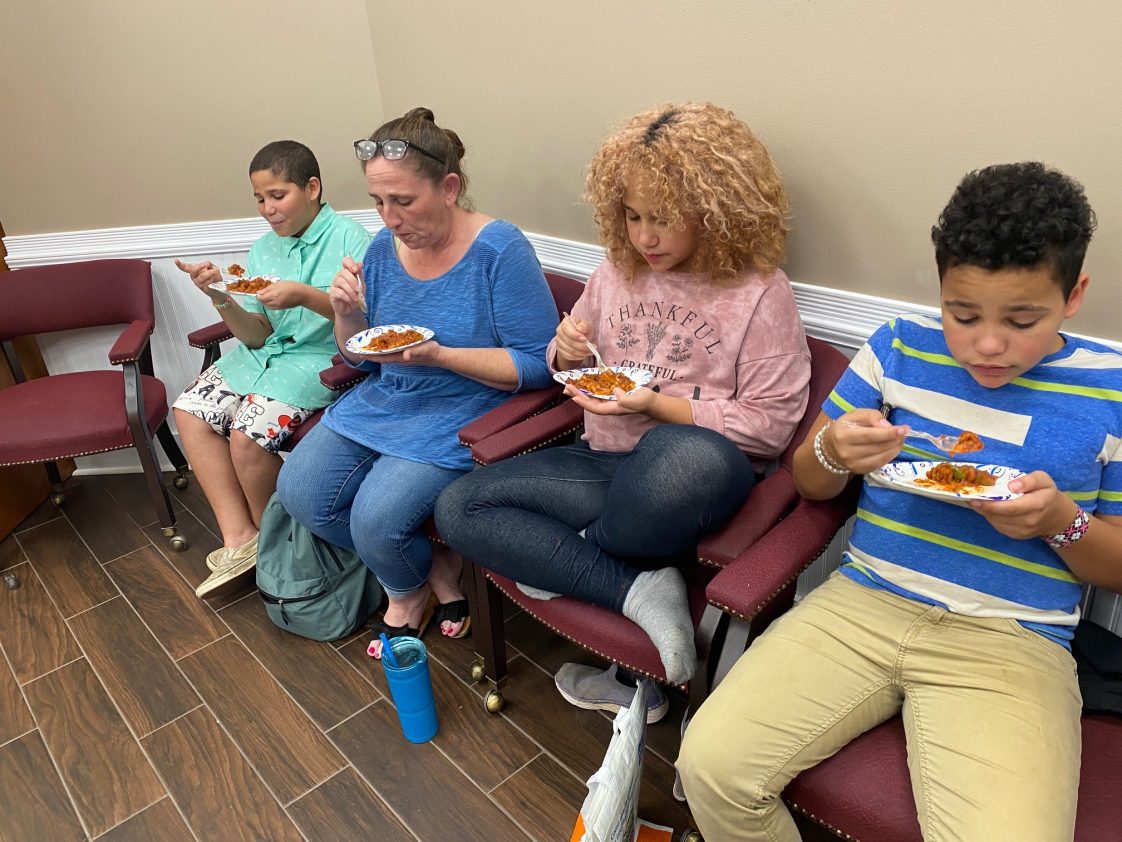Home & Family

AUBURN UNIVERSITY, Ala. — Nutrition education is a big deal for the Alabama Cooperative Extension System’s Supplemental Nutrition Assistance Program – Education (SNAP-Ed) team. Educators took to the stage to highlight some of their success stories from working with the state’s residents. This event, titled MyPlate Nutrition Security Success Stories: Sharing the Good Work of the Community, focused on successes surrounding the United States Department of Agriculture (USDA)’s MyPlate tool. The gathering also provided opportunities to discuss nutritional needs of different communities.
At the event, SNAP-Ed Coordinator Katie Funderburk and Regional Extension Agents Michelle Puckett and Kristen Sanders discussed the successful use of MyPlate and the impact of nutrition education in Alabama.
The session, moderated by Caree Cotwright, director of Nutrition Security and Equity with the USDA Food and Nutrition Service, discussed the impact of nutrition education. Puckett and Sanders highlighted strategies they use to help people learn to eat healthier. Their efforts show how these ideas can lead to lasting improvements in community health.
“We were inspired by the many stories shared by nutrition educators from around the southeastern United States,” Funderburk said. “It was an honor to be invited to share real stories about the positive impact of SNAP-Ed in Alabama communities on a national stage.”
What is MyPlate?
MyPlate, introduced by the USDA in 2011 to replace the Food Guide Pyramid, offers a simple approach to healthy eating. It is a model that educators use to teach people how to incorporate a variety of healthy foods in a daily diet. MyPlate allows individuals to plan their meals to fit specific dietary needs, preferences, cultural traditions and budgets.
 If You Cook It, They Will Come
If You Cook It, They Will Come
Sanders has witnessed success in Crenshaw and Pike counties using MyPlate. Using the MyPlate for My Family curriculum, Sanders developed a four-week series called My Plate for My Family Cooking Night. The program teaches the basics of food safety and preparation and the importance of nutritious eating. Hands-on classes allow participants to engage in meal planning and prepare dishes using healthy, budget-friendly ingredients.
“The aim was to not just teach families to cook, but to empower them to make healthier choices that fit their lives and budgets,” Sanders said.
Participants expressed both surprise and delight at their new cooking skills and the ease of creating healthy meals that tasted good. Sanders said feedback was overwhelmingly positive.
“I had one parent tell me that they never knew making homemade mac and cheese was so easy,” Sanders said. “Another said her children requested the meals multiple times. Other families returned for another family cooking class series.”
Sanders said it is rewarding to see families come back, excited to learn and try new recipes.
Expanding Nutrition Education in Communities
 Puckett, who serves Barbour and Henry counties, has implemented the MyPlate tool in various community settings to promote healthier eating habits. In a rural grocery store, Puckett uses MyPlate as a visual aid to educate shoppers about putting together an affordable, balanced meal. A notable example of the SNAP-Ed outreach partnership is the introduction of the Good Choice Healthy Retail cooler within the store, stocked with ingredients for Live Well Alabama recipes. Providing these recipes makes preparing and cooking their next healthy meal easier.
Puckett, who serves Barbour and Henry counties, has implemented the MyPlate tool in various community settings to promote healthier eating habits. In a rural grocery store, Puckett uses MyPlate as a visual aid to educate shoppers about putting together an affordable, balanced meal. A notable example of the SNAP-Ed outreach partnership is the introduction of the Good Choice Healthy Retail cooler within the store, stocked with ingredients for Live Well Alabama recipes. Providing these recipes makes preparing and cooking their next healthy meal easier.
In addition to the SNAP-ed shopping experience, Puckett has adapted MyPlate for culturally diverse audiences. This includes offering nutrition classes for Hispanic families with materials in Spanish.
“The visual simplicity of MyPlate helps bridge language barriers and makes nutrition universally understandable,” Puckett said.
With the help of an interpreter, these classes include interactive activities, such as making a MyPlate-inspired meal using food replicas. These models helped participants understand meal planning and make nutrition choices easier. Puckett has also enhanced nutrition education at a rural food pantry by securing permanent MyPlate signage through a High Obesity Program grant from the Centers for Disease Control and Prevention’s Division of Nutrition, Physical Activity and Obesity.
Simple and Easy to Use
MyPlate is a proven tool in many community settings, helping individuals and families make healthier food choices. By providing a simple visual guide for creating balanced meals, MyPlate has supported initiatives like Sanders’ family cooking classes and Puckett’s in-store education. This tool is helping to make nutritional education easier to understand and apply in Alabama communities. Learn more about MyPlate by visiting myplate.gov.
More Information
To learn more about nutrition and physical activity, visit www.LiveWellAlabama.com. There, you can find valuable resources, practical advice and insights to support your wellness journey.
For those looking to connect with others interested in a healthy lifestyle, consider following Live Well Alabama on social media. Their Facebook, Twitter and Instagram platforms offer a space to share experiences, find inspiration and join a community focused on well-being.

